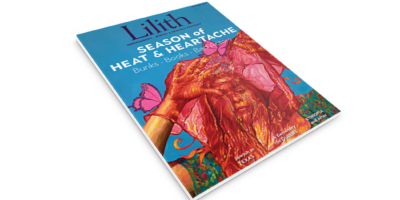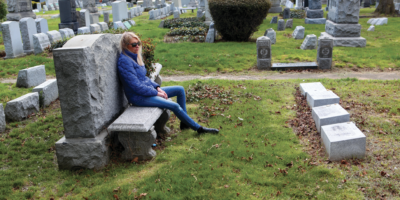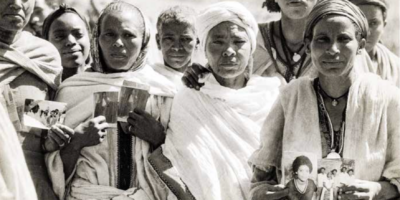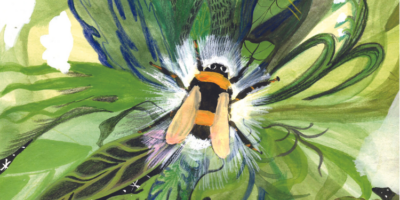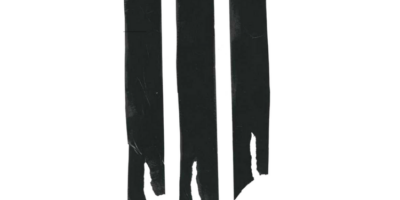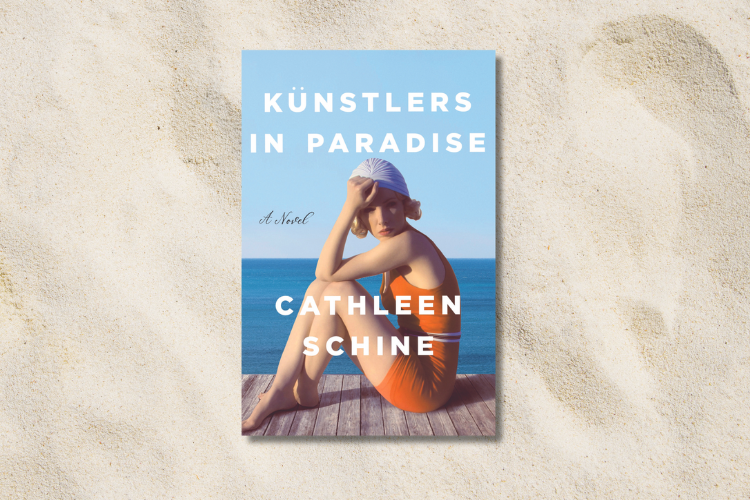
Emigres in The Promised Land
In Künstlers in Paradise (Henry Holt and Company, $27.99) by Cathleen Schine, the titular Künstlers include Mamie and her grandson Julian, who’s visiting from New York City when Covid hits in early 2020. The paradise is southern California.
Now 92, Mamie Künstler has worked hard “to empty her mind of tragedy.” She arrived from Vienna with her family in 1939, and grew up among émigré artists in Hollywood. A retired violinist, she raised her son Frank on her own after her husband left. Despite the hairline fracture on her wrist—the event that prompted Julian’s visit—Mamie’s content in her Venice Beach bungalow, where she lives with her mysterious and grumpy house-keeper, Agatha, and a Saint Bernard. Julian, meanwhile, is kind but immature, a self-absorbed 24-year-old who “exist[s] in an exciting, satisfying serial monogamy of intellectual pursuits.” He works part time and shows little interest in finding a career. His loving parents despair of him.
As Covid ravages the country, Mamie and Julian drink martinis in her backyard. Mamie reminisces, telling Julian stories about her parents and grandfather, and about tennis with her mentor, the composer Arnold Schoenberg. She tells Julian the history of Venice Beach, a tale of seized land and racial discrimination in a town its founder built to resemble its Italian namesake. And Mamie doesn’t share, but we do learn about her long-ago love affair with Greta Garbo.
The plot is light; Julian frets about his parents and Mamie as well as his future (he’s supposedly writing a screenplay). Time slips by, anchored by Zoom calls and placid bickering between Mamie and Agatha. Julian walks Mamie’s dog and becomes friends with his neighbor Sophie, to whom he relates his grandmother’s stories. Devoid of urgency, the story relies on Schine’s dry, distinctive voice to drive the narrative.
But that’s plenty, because Schine chronicles the comedy of family life with skill and empathy. Fans of the author (who, like Julian, left New York for Los Angeles) will recognize Künstlers in Paradise’s urbane, secular Jews from novels like The Three Weissmanns of Westport and They May Not Mean To, But They Do, but familiarity doesn’t diminish the novel’s charms. When Julian learns that his parents have been “recklessly buying lox” at Barney Greengrass, his outrage is appropriately selfish: “They were insane, he’d always thought that. But it never occurred to him that they were careless. That was his prerogative as a young person. They should stay in their own lane.”
Schine catalogs the ironies Covid has wrought: When Mamie tells Julian that in Vienna, she and her grandfather stayed indoors to avoid antisemitic violence, Julian points out that Covid has put her in the same position. Then he wonders: “Was the virus to be compared to the Nazis? Was that in the worst possible taste? An insult to his grandmother? An insult, even, to the virus?” And later, Julian glumly observes, “No stores were open, it was hard to find flour, there were riots and rioting police, but you could have weed delivered.”
Künstlers in Paradise features familiar scenes—the refugees’ amazement at Americans’ casual extravagance, Julian’s parents’ embarrassing pride at having a Black son-in-law, a Zoom seder—but Schine’s insights about everything from “virtue signaling succulents” to “competitive suffering” are funny and often startling.
Towards the end of the novel, Julian calls Mamie’s stories “extremely entertaining,” prompting Mamie to consider, “Perhaps that the reason I tell him stories. That, right there. Legacy? Shmegacy. Entertainment! Was it the opiate of the masses like religion? Or was it subversive: a glimpse of joy?”
Schine’s work is full of glimpses of joy. Her stylish prose describes the pains and absurdities of daily life with a clear-eyed humor, leaving readers with a writer’s greatest gift: stories that delight.
Elizabeth Michaelson Monaghan lives in New York City, where she is usually reading. Her work has appeared in SELF, The Week, City Limits, and other titles.

